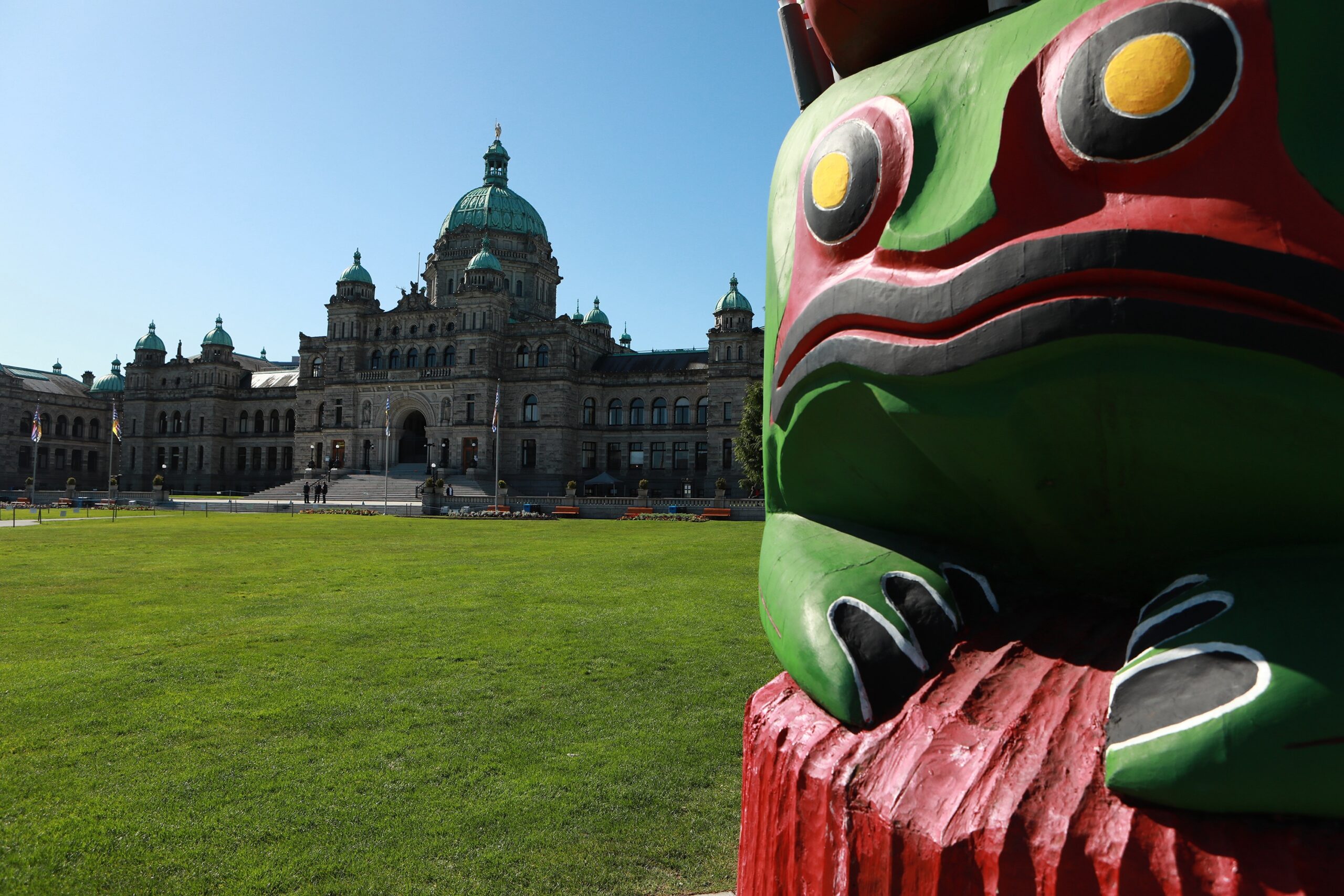On Thursday, May 16, the 42nd Legislative Session came to an end, setting the stage for the fall 2024 general election.
It was a dynamic session characterized by a high volume of legislation introduced and adopted, and the active participation of four political parties vying to demonstrate their positions on key issues. It marked the final session of the electoral mandate of the BCNDP government elected in October 2020, and Premier David Eby’s third session since becoming premier in December 2022.
Premier Eby has used every opportunity to remind that his priorities are housing, affordability, health care, child care, reconciliation with First Nations and Indigenous Canadians, and addressing climate change. His government used their comfortable majority in the legislature (55 BCNDP – 26 BC United – 2 BC Greens – 2 BC Conservatives – 2 Independent) to deliver on a sweeping range of policy initiatives that have been in development since the BCNDP formed government in 2017.
Opposition to government’s agenda was robust this session. A few factors contributed to this:
- The active engagement of the fourth party in the legislature, the BC Conservative Party, in Question Period and efforts to introduce legislation. In a rare move, the BCNDP were joined by BC Greens and independent members in blocking BC Conservative MLA Bruce Banman’s private member bill that would have excluded female transgender athletes from publicly funded sporting events in B.C.
- The resignation of BCNDP Post Secondary Education and Future Skills Minister Selina Robinson and her decision to sit as an independent, using her voice to critique government’s lack of action on addressing anti-Semitism in B.C.
- The battle between the official Opposition BC United Party and the BC Conservative Party, amid a surge in popular opinion for the BC Conservatives. Each party tried to stake its opposition to the BCNDP in different ways without having a significant impact on the legislative agenda. One issue where Opposition had an impact on government was on getting the BCNDP to back down on the decriminalization of certain illegal substances as a harm reduction measure in response to the public health overdose emergency.
The legislative agenda
During the spring session the government introduced 27 new bills, of which 25 received royal assent. The key themes of the legislative session were action on affordable homes, strengthening healthcare, easing cost of living pressures, community safety and a resilient economy.
Legislation intended to enable the supply of housing, and to increase affordability of housing, dominated government’s agenda. This included laws to crack down on bad-faith evictions, curb speculation through a house-flipping tax, and to legislate rent tied to unit (vacancy control) in single-room occupancy units in Vancouver’s Downtown Eastside. Laws enabling municipalities to fast-track housing construction were welcomed by many but place strain on local governments.
Among the bills introduced was the historic Haida Nation Recognition Amendment Act, which recognizes the Haida Nation’s Aboriginal tile throughout Haida Gwaii and is the first to recognize Aboriginal title in Canada.
Notably, Bill 12 The Public Health Accountability and Cost Recovery Act, was put on hold after business groups and social media companies expressed concerns over the scope of the bill. To address these concerns the province launched a new Online Action Table alongside Meta, Google, TikTok, Snap, and X (formerly Twitter) to work on increasing safety in online spaces. The provincial government has said that it can revive the bill at any time, but it is currently still on hold, with the action table promising further concrete actions to be announced in September.
A shifting opposition
According to the website 338Canada, which averages the most recent provincial polls, (as of May 13) the BC New Democratic Party is leading with 41 per cent support, the BC Conservatives have 30 per cent, BC United in third place with at 16 per cent, and the BC Green party stands at 10 per cent.
Despite holding a large lead for months, recent polling suggests the BC NDP is losing ground to the BC Conservatives, with an Abacus poll showing a lead of only six points, down from 18 at its peak. The numbers show the BC Conservatives clearly have momentum, likely prompted by poor economic conditions and the popularity of the federal Conservatives, but it is still likely we will have a BCNDP government after the election. However, we know that election campaigns matter and while a party may have a lead or momentum going into an election, that can very quickly change.
The final week of the session was mired with secret negotiations, public statements and denials of a potential merger between BC United, led by MLA for Vancouver-Quilchena Kevin Falcon, and the upstart BC Conservatives led by MLA for Nechako Lakes John Rustad. Both leaders have a history of animosity between each other, and the key question leading into the general election is, will there be a clear choice for voters who don’t support the vision of Premier Eby and the BCNDP?

Regardless of the outcome of the election, several long-term members of the legislature will not be returning due to their decision not to seek re-election. These include Finance Minister Katrine Conroy and Environment Minister George Heyman on the government side, and BC United MLAs Mike De Jong and Ellis Ross who will be running as Conservative Party of Canada candidates in the next federal election. More sitting MLAs in each party could announce their decisions not to seek re-election over the summer breaks, ahead of the official start of the election campaign.
The B.C. general election will take place on or before October 19, 2024. Until then, government remains charged with governing through what is expected to be a challenging wildfire and drought season. With political “silly season” officially underway, prepare for a dynamic and evolving political time in BC.
Legislation that received royal assent in the Spring Session
- Employment Standards Amendment Act, 2024
- Budget Measures Implementation Act, 2024
- Municipal Affairs Statutes Amendment Act, 2024
- Child, Family and Community Service Amendment Act, 2024
- Supply Act (No. 1), 2024
- Social Development and Poverty Reduction Statutes Amendment Act, 2024
- Athlii Gwaii Legacy Trust (Winding Up) Act
- Miscellaneous Statutes Amendment Act, 2024
- Commercial Transport Amendment Act, 2024
- Vancouver Charter Amendment Act, 2024
- Land Title and Property Law Amendment Act, 2024
- Tenancy Statutes Amendment Act, 2024
- Budget Measures Implementation (Residential Property (Short-Term Holding) Profit Tax) Act, 2024
- Housing Statutes Amendment Act, 2024
- Police Amendment Act, 2024
- Vancouver Charter Amendment Act (No. 2), 2024
- Children and Family Development Statutes Amendment Act, 2024
- First Nations Mandated Post‑Secondary Institutes Act
- Legal Professions Act
- Safe Access to Schools Act
- Anti-Racism Act
- Energy Statutes Amendment Act, 2024
- Haida Nation Recognition Amendment Act, 2024
- Name Amendment Act (No. 2), 2024
- Municipalities Enabling and Validating (No. 5) Amendment Act, 2024
- Supply Act, 2024–2025











